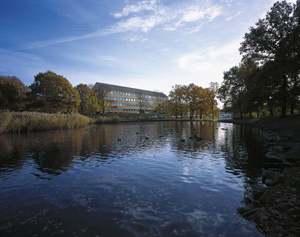
On 14-16 November 2013, Aarhus University is hosting a conference for researchers, cultural actors and artists from a range of different fields that will focus on the potential of user-driven production, DIY, participatory planning and social entrepreneurship.
The impetus for the conference is the recently increasing emphasis on citizens as producers in a wide range of areas – including urban development, art and digital culture – as well as the corresponding interdisciplinary research focus on the political and social potential in involvement and participation.
The conference addresses this participatory turn in cultural studies and asks: How do we understand and evaluate the positive political, cultural and social potential in this development.
The conference is organised in corporation with a wide range of actors in the city and will thus experiment with different ways of integrating research in various cultural and political settings. In this way, the conference will search for new opportunities for increasing the impact of the contributions, not only within the academic community but also in the actual surroundings of the conference.
In recent years studies of aesthetic, urban and digital culture have focused on and praised the political potential of user-driven production – often referred to by means of concepts such as DIY urbanism and participatory culture, co-creation, produsage, creative place-appropriation, everyday
creativity, participatory planning, social production and social entrepreneurship. And while the first
generation of promoting the creative city was based in the ambition of supporting (and capitalizing
on) individual creativity, we now see a growing interest in collective creation of cultural content. But
how do we understand and support collective creation, and what new challenges does this change
bring forth?
This participatory turn of contemporary cultural analysis and theory has nevertheless not always
clearly addressed what ‘positive political change’ might mean and how to evaluate the political potentials and/or impacts of a certain cultural activity including non-professional or ‘vernacular’ production. Therefore the conference RETHINK Participatory Cultural Citizenship wants to address,
explore and discuss the effects of projects where citizens act as agents of change in e.g. urban,
digital and aesthetic spaces.
The conference focuses on a range of urgent challenges to the understanding and future development of urban, digital and aesthetic participatory civic cultures. These include:
1. How do we develop frameworks to evaluate the potentials of participation, and how do we
design/enable participatory processes, which have this potential to a satisfying degree?
2. How can we use participatory cultural processes as an effective critical practice? And what does
“effective” mean?
3. To what extent can participation in itself be of political value in terms of enabling active
citizenship, and is it meaningful to suggest that the amount of participation motivated by a
certain event constitutes a measure of its success? Or could the increasing sum of citizen
voices, for instance online, in itself threaten genuine political interaction?
4. What is the trade-off between present and future participations? How can bottom-up cultural
initiatives e.g. become anchored within the long-term planning of spaces, cities and institutions,
and should proper political participation even result in lasting changes of spaces, discourses,
policies or institutions? And if so, how should future participatory projects relate to these lasting
results of previous projects?
5. How and to what extent is political or cultural participation threatened by institutional and/or
economic strategies trying to profit from the work of users? Or could the intertwinement of
fundamentally diverse agencies and agendas really be perceived as an opportunity for profound
citizen empowerment?
RETHINK Participatory Cultural Citizenship is a collaboration between Aarhus University and Aarhus 2017, and is the first of a series of conferences leading to Aarhus being the European Capital of Culture in 2017: www.aarhus2017.dk/
Please register on this webshop before 27/10/2013

Written interviews made by Hilde C. Stephansen and Nick Mahony for openDemocracy / Participation Now:
Video interviews produced by AU KOM: